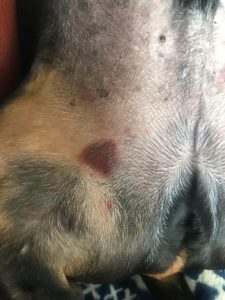An immune-mediated disease is any condition in which the immune system becomes overstimulated and attacks its own organs or cells. Immune-mediated hemolytic anemia (IMHA) is a condition in which the immune system attacks and breaks down red blood cells in the body.
Causes of IMHA
There are two types of IMHA: primary (idiopathic) IMHA and secondary IMHA. Primary IMHA occurs when an animal’s immune system mistakenly attacks its own red blood cells. It is the most common type of IMHA in pets, and its underlying cause is unknown.
Secondary IMHA is thought to be triggered by factors including inflammatory diseases, infection, and reactions to certain medications.
Symptoms of IMHA
Red blood cells are responsible for carrying oxygen throughout the body. IMHA causes a reduction in the number of red blood cells available. When this happens, your pet’s organs do not receive enough oxygen and are unable to function properly.
Please visit your veterinarian as soon as possible if your pet displays any of the following clinical signs of IMHA.
- Pale or yellow gums
- Lethargy
- Loss of appetite
- Exercise intolerance
- Weight loss
- Seizures
- Vomiting
Diagnosis of IMHA
Your veterinarian will check your pet’s medical history and perform a thorough physical examination. Blood work plays an important role in diagnosing IMHA. Some of the most common diagnostic tests include a complete blood count, blood chemistry tests to evaluate organ function, and a saline agglutination test (SAT) to check for clinical signs of IMHA.
A Coombs test may also be performed to detect the presence of antibodies on the surface of red blood cells. This will involve sending samples of your pet’s blood to an outside laboratory for analysis. Your veterinarian may also recommend a urinalysis, X-rays, ultrasounds, or other specialized tests to help identify the underlying cause of your pet’s condition.
Treatment of IMHA
Treatment of IMHA will depend on the severity of the condition. Steroids are commonly prescribed to suppress the immune system in the initial stages of treatment, although they are rarely recommended for long-term use. Your veterinarian may also prescribe other immunosuppressive medications to minimize your pet’s symptoms.
Pets with severely low red blood cell counts may require hospitalization during treatment. This will allow them to be closely monitored and receive specialized treatments such as blood transfusions to stabilize their condition.
Prevention of IMHA
IMHA is not considered to be a preventable disease, as its cause can rarely be identified. Please visit your veterinarian if your pet displays any potential symptoms of IMHA, as early treatment will improve their prognosis.



